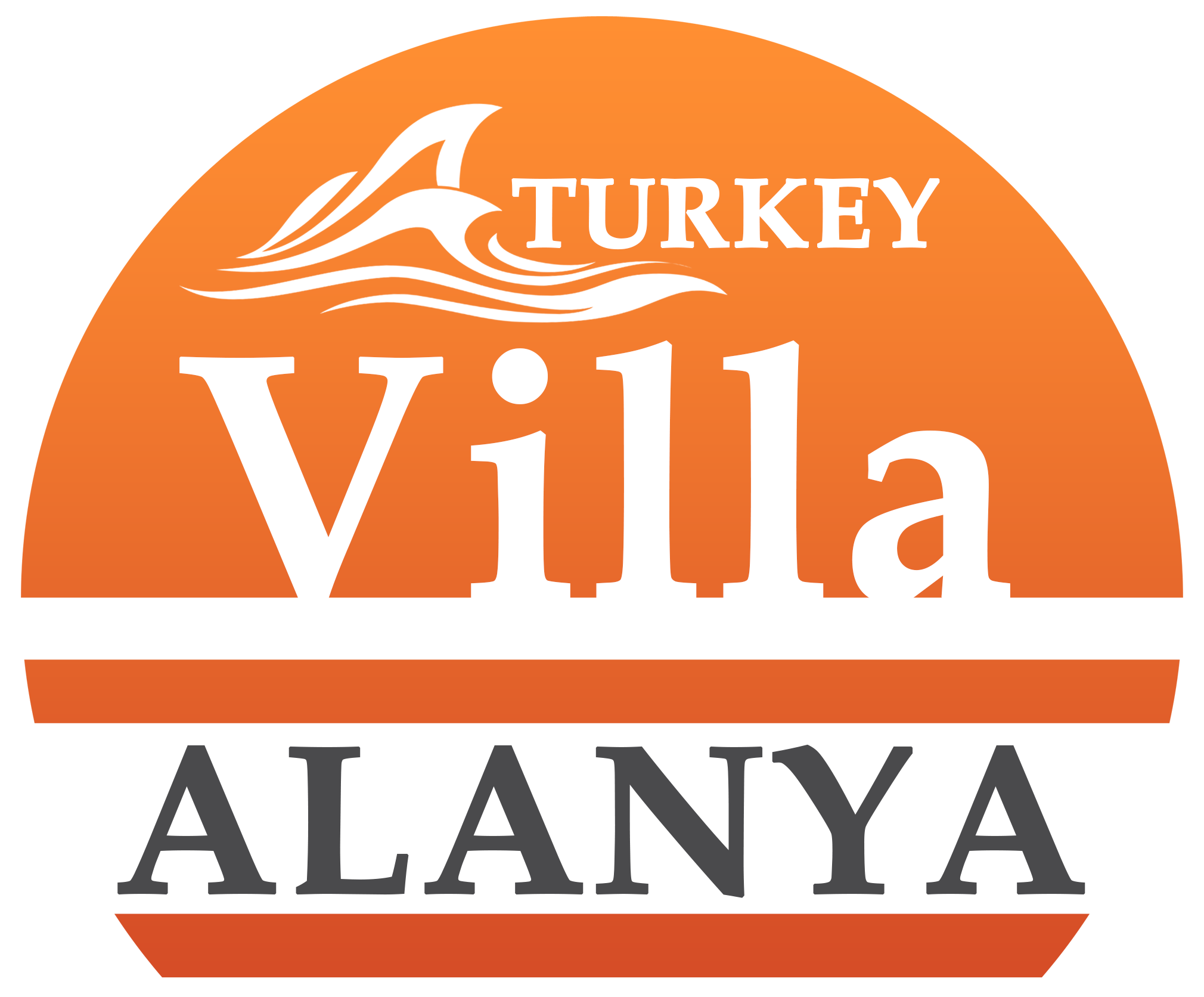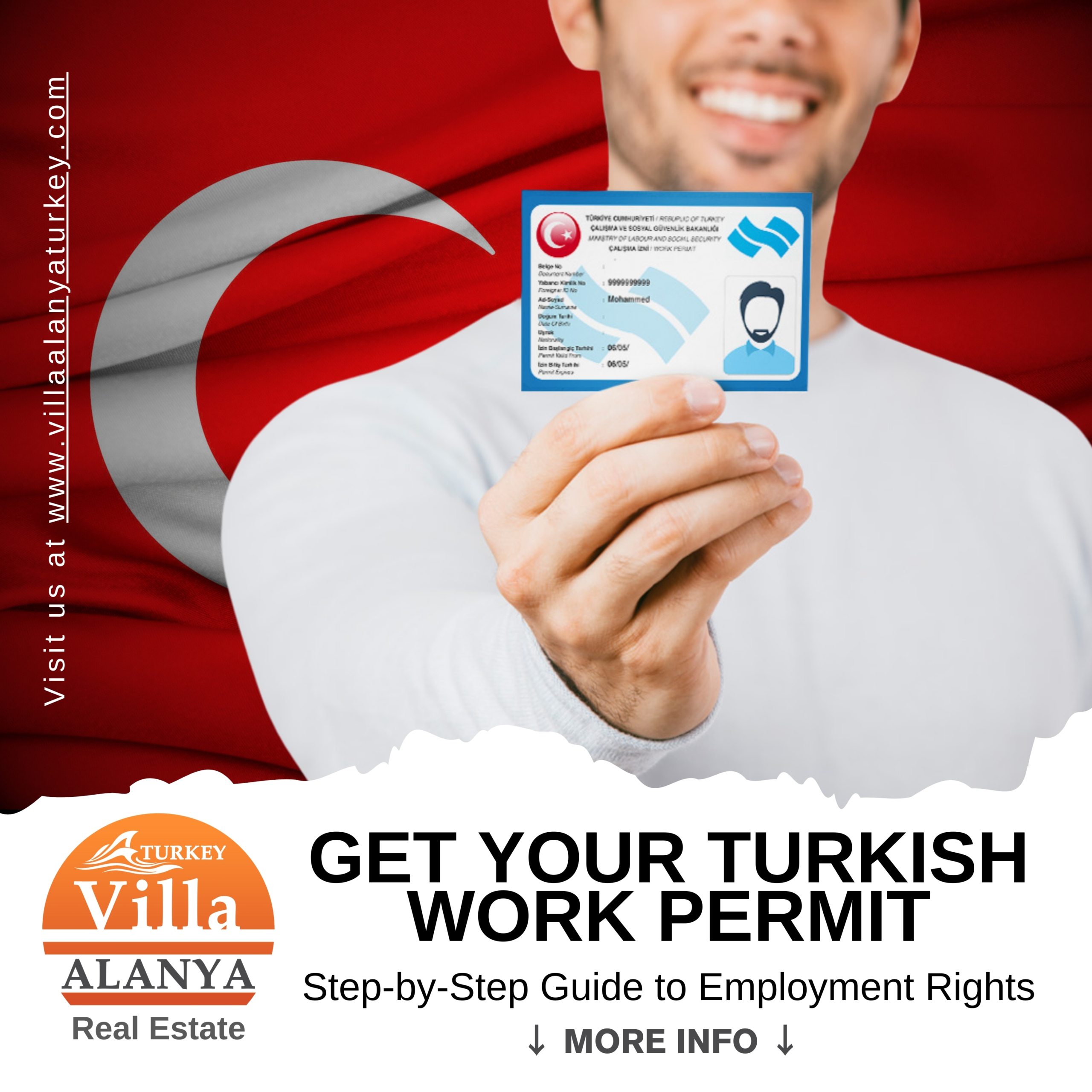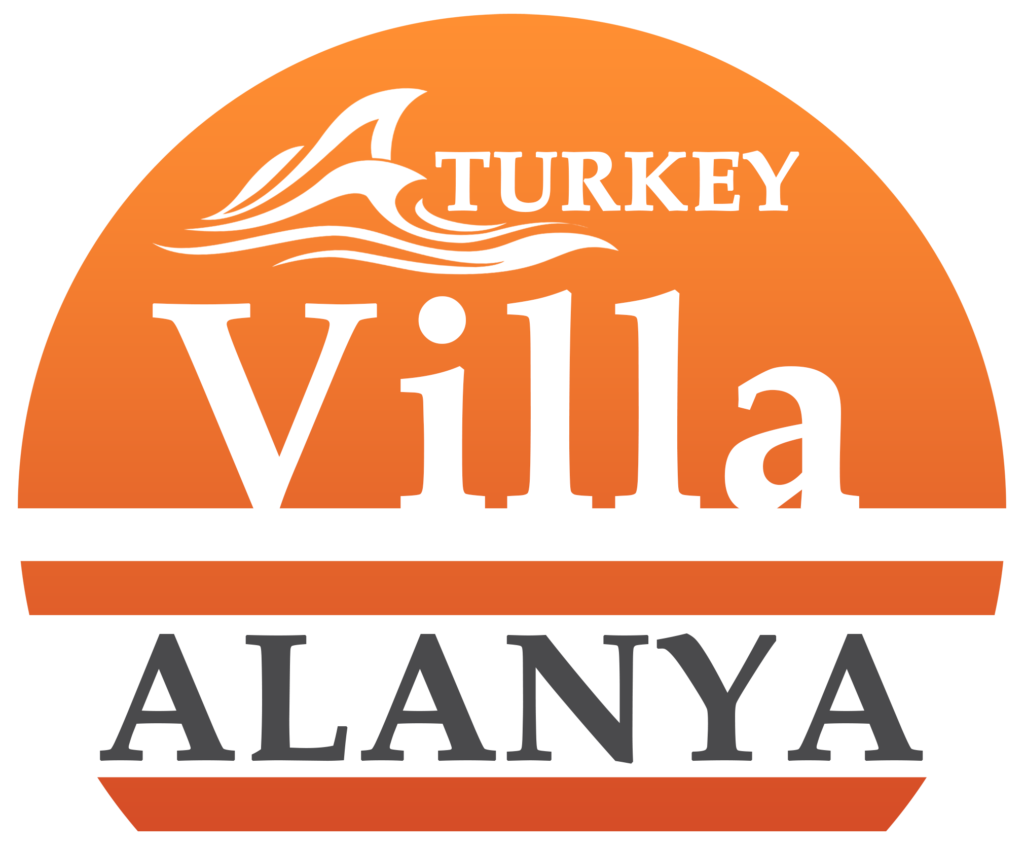Úvod do pracovního víza v Turecku
Pracovní vízum v Turecku je úřední doklad, který cizincům umožňuje hledat v zemi zaměstnání. Toto vízum je klíčové pro každého, kdo plánuje v Turecku vykonávat pracovní činnost, neboť zajišťuje, že jeho pracovní status je právně uznán a že má nárok na práva a ochranu přiznanou tureckým pracovníkům.
V Turecku je k dispozici několik typů pracovních víz v závislosti na povaze a délce zaměstnání. Mezi běžné kategorie patří dočasná pracovní víza, trvalá pracovní víza a víza pro zvláštní účely, jako jsou víza pro výzkumné pracovníky, sezónní pracovníky a pracovníky převedené v rámci společnosti. Každý typ víza odpovídá různým potřebám zaměstnání a je rozhodující pro zajištění legálního pracovního statusu.
Ekonomický dopad získání pracovního víza přesahuje individuální výhody. V případě Turecka přispívá robustní systém řízení zahraniční pracovní síly významně k rozmanitosti a dynamice jeho pracovního trhu. Pomáhá zaplnit nedostatek kvalifikovaných pracovníků v různých odvětvích, přináší specializované odborné znalosti a podporuje kulturně bohaté profesní prostředí. Tato integrace zahraničních talentů je nezbytná pro udržení konkurenční výhody a podporu hospodářského růstu země.
Držení pracovního víza navíc zajišťuje zahraničním zaměstnancům právní ochranu a výhody, které jsou v souladu s tureckým pracovním právem a mezinárodními pracovními standardy. Zajišťuje práva pracovníků a podporuje spravedlivé a etické postupy při zaměstnávání. Zaměstnavatelům nabízí legální cestu k zaměstnávání kvalifikovaných zahraničních pracovníků, což následně zvyšuje produktivitu a inovace pracovní síly.
Pracovní vízum v podstatě není jen formálním požadavkem, ale zásadním prostředkem pro hospodářskou a sociální součinnost mezi Tureckem a jeho zahraničními pracovníky. Hraje zásadní roli při utváření vyváženého a právně vyhovujícího pracovního trhu a posiluje vzájemné výhody jak pro zaměstnance, tak pro národ.
Kritéria způsobilosti
Získání pracovního víza v Turecku vyžaduje splnění specifických kritérií způsobilosti přizpůsobených různým profesím a kategoriím pracovníků. Znalost těchto požadavků je pro hladký průběh žádosti zásadní.
Hlavním předpokladem pro každého uchazeče je získání platné nabídky práce od tureckého zaměstnavatele. Tento zaměstnavatel musí být v Turecku registrován a musí být schopen doložit, že na danou pozici potřebuje zahraničního pracovníka. Nabízené pracovní místo by mělo skutečně vyžadovat určitý soubor dovedností nebo odborných znalostí, které nemusí být na místním trhu práce snadno dostupné.
V závislosti na zamýšlené pozici jsou nezbytné specifické kvalifikace a dovednosti. U kvalifikovaných odborníků, jako jsou inženýři, lékaři nebo IT specialisté, je nezbytné mít příslušné akademické tituly a odbornou praxi. Některé profese navíc vyžadují akreditaci nebo licenci od tureckých úřadů, což vyžaduje další kontroly a ověřování.
Naproti tomu dělníci musí zpravidla prokázat odpovídající pracovní zkušenosti nebo vzdělání ve svém oboru. Zaměstnavatelé, kteří chtějí zaměstnat dělníky, musí prokázat snahu najít vhodné kandidáty v rámci místní pracovní síly a doložit potřebu zahraniční pracovní síly prokazatelnými kritérii, jako jsou inzeráty s nabídkou práce a nedostatek na místním trhu práce.
Akademičtí pracovníci mají jedinečné standardy, které často vyžadují vysokoškolské vzdělání, publikace a zkušenosti v oboru. Univerzity a výzkumné instituce v Turecku obvykle podporují takové žádosti poskytnutím potřebné dokumentace, včetně oficiálního pozvání nebo nabídky práce.
Dokumentace je důležitým prvkem v procesu podávání žádostí. Kromě pracovní smlouvy musí uchazeči předložit doklady totožnosti, doklady o kvalifikaci a případná osvědčení specifická pro dané odvětví. Kromě toho mohou být povinni předložit čistý trestní rejstřík a zprávu o lékařské prohlídce.
Klíčovou roli hrají také předpisy specifické pro dané odvětví. V některých odvětvích, jako je zdravotnictví a školství, platí přísná pravidla pro zaměstnávání cizinců. Zajištění souladu s těmito předpisy je nezbytné k tomu, aby se předešlo jakýmkoli překážkám během procesu žádosti o vízum.
Práva držitelů pracovních víz v Turecku
Osoby s pracovním vízem v Turecku mají řadu práv a povinností, které jim zajišťují spravedlivé zacházení a integraci na tureckém trhu práce. Tato práva zahrnují především legální pracovní podmínky, platové nároky, ochranu před diskriminací a přístup k sociálnímu zabezpečení a zdravotním službám.
Základním právem držitelů pracovních víz je nárok na legální zaměstnání za podmínek stanovených tureckým pracovním právem. Zaměstnavatelé jsou povinni dodržovat regulovanou pracovní dobu, zajistit zdravé a bezpečné pracovní podmínky a poskytovat odpovídající odměnu. Tento právní rámec je navržen tak, aby chránil zájmy zahraničních pracovníků a zároveň zachovával provozní standardy v Turecku.
Dalším důležitým aspektem jsou platové nároky držitelů pracovních víz. Pracovní právo v Turecku zaručuje, že zahraniční zaměstnanci mají stejnou minimální mzdovou ochranu jako turečtí občané. Zaměstnavatelé jsou povinni zajistit včasnou výplatu a dodržování mzdových dohod, čímž je zajištěna ekonomická stabilita osob s pracovním vízem v Turecku.
Ochrana proti diskriminaci je v Turecku pro držitele pracovních víz přísná. Jakákoli forma diskriminace na základě národnosti, pohlaví, náboženství nebo etnického původu je zákonem výslovně zakázána. Turecký právní systém nabízí možnost odvolání prostřednictvím pracovních soudů, kde mohou zahraniční pracovníci řešit stížnosti týkající se nezákonných praktik nebo nerovného zacházení na pracovišti.
Pokud jde o sociální zabezpečení, držitelé pracovních víz mají přístup ke stejným dávkám jako jejich turečtí kolegové. Patří sem i pojištění v rámci národního systému zdravotního pojištění, který poskytuje lékařskou péči prostřednictvím sítě nemocnic a klinik. Kromě toho zahraniční zaměstnanci přispívají do systému sociálního zabezpečení, který zahrnuje starobní důchody, invalidní dávky a pojištění v nezaměstnanosti, a využívají jeho výhod.
Kromě těchto standardizovaných práv mohou držitelé pracovních víz využívat také jedinečné výhody, které je odlišují od ostatních kategorií víz. Držitelé pracovních víz mají například možnost za určitých podmínek sponzorovat rodinné příslušníky, kteří se k nim v Turecku připojí, a mohou také využívat specializovanou právní pomoc týkající se pracovních práv a imigračních záležitostí.
Pro úspěšné zvládnutí procesu získání pracovního víza v Turecku je zásadní dodržovat strukturovaný přístup. Níže uvádíme podrobného průvodce krok za krokem, který žadatelům pomůže s přípravou, podáním a finalizací žádosti.
Krok 1: Shromáždění požadovaných dokumentů
Začněte shromažďováním všech potřebných dokumentů. Obvykle se jedná o vyplněný formulář žádosti o pracovní vízum, cestovní pas (s nejméně šestiměsíční platností), aktuální fotografii pasového formátu, platnou nabídku práce od tureckého zaměstnavatele, živnostenský list zaměstnavatele a doklad o vzdělání a odborné kvalifikaci. Doporučujeme překontrolovat konkrétní požadavky na webových stránkách tureckého konzulátu nebo ministerstva práce a sociálního zabezpečení, protože se mohou mírně lišit v závislosti na státní příslušnosti žadatele a typu zaměstnání.
Krok 2: Zajistěte si nabídku práce od tureckého zaměstnavatele
Před podáním žádosti o pracovní vízum do Turecka musíte získat pracovní nabídku od tureckého zaměstnavatele, který je ochoten sponzorovat vaše vízum. Po podpisu pracovní smlouvy bude muset zaměstnavatel poskytnout několik dokumentů, včetně žádosti o zaměstnání a finančních výkazů, na podporu vaší žádosti.
Krok 3: Odeslání žádosti
Po shromáždění požadovaných dokumentů je dalším krokem podání žádosti. Žádost lze podat na tureckých konzulátech nebo velvyslanectvích ve vaší zemi. Ti, kteří již v Turecku legálně pobývají, mohou žádosti podat také přímo na ministerstvu práce a sociálního zabezpečení.
Krok 4: Účast na pohovorech
V závislosti na konkrétní kategorii víz a profilu žadatele mohou být vyžadovány pohovory. Ty se obvykle konají na tureckém konzulátu nebo velvyslanectví. Během pohovoru může být žadatel požádán o poskytnutí doplňujících informací nebo vysvětlení ohledně své pracovní pozice a kvalifikace.
Krok 5: Čekání na schválení
Po předložení potřebných dokumentů a účasti na požadovaných pohovorech turecké úřady žádost posoudí. Doba vyřízení žádosti se může lišit, ale obvykle trvá přibližně 30 až 60 dní. Žadatelé budou o rozhodnutí vyrozuměni e-mailem nebo úřední korespondencí.
Poplatky za podání žádosti
Poplatky za žádost o pracovní vízum do Turecka se mohou lišit v závislosti na státní příslušnosti a délce platnosti víza. Aktuální strukturu poplatků je nutné zkontrolovat na oficiálních stránkách tureckého konzulátu nebo ministerstva práce a sociálního zabezpečení. Podcenění nákladů může vést ke zpoždění nebo zamítnutí žádosti.
Pečlivým dodržováním těchto kroků mohou žadatelé zvýšit své šance na získání pracovního víza v Turecku a vydat se tak na novou profesní cestu do této dynamické a ekonomicky rozmanité země.
Požadovaná dokumentace
Pro získání pracovního víza v Turecku je nutné předložit různé důležité dokumenty. Hlavním z nich je platný cestovní pas, který musí být platný minimálně 60 dní po skončení plánovaného pobytu v Turecku. Je nezbytné zajistit, aby váš pas splňoval tento požadavek, protože turecké imigrační úřady toto nařízení přísně dodržují.
Dále je důležitá pracovní smlouva nebo nabídka práce od tureckého zaměstnavatele. V tomto dokumentu by měla být podrobně popsána vaše pracovní pozice, povinnosti a podmínky zaměstnání a měl by sloužit jako doklad o vašem angažmá u tureckého subjektu. Bez tohoto dokumentu může být vaše žádost o pracovní vízum zamítnuta. Dále je třeba předložit osvědčení o vzdělání a doklad o odborné kvalifikaci, které potvrdí vaši odbornost. V závislosti na povaze práce, o kterou se ucházíte, se může jednat o vysokoškolské diplomy nebo profesní osvědčení.
Dalším důležitým dokumentem je zdravotní pojištění. Musíte prokázat, že máte platné zdravotní pojištění na celou dobu pobytu v Turecku. Tento požadavek zajišťuje, že budete mít během pobytu v zemi odpovídající přístup k lékařské péči.
Dále je nutné předložit potvrzení policie z vaší domovské země nebo ze země, kde jste pobývali v posledním roce, že jste bez záznamu v trestním rejstříku. Tento dokument ujišťuje turecké úřady o vašem bezúhonném chování a úmyslech. Spolu s ním je třeba k žádosti přiložit aktuální fotografie pasového formátu, které splňují specifické rozměry a požadavky na pozadí stanovené tureckou vládou.
Někdy tyto dokumenty vyžadují ověření pravosti nebo notářské ověření, aby byly považovány za platné pro úřední účely. Tento proces se liší v závislosti na zemi původu, ale obecně zahrnuje ověření dokumentů notářem nebo příslušným státním orgánem, čímž se zajistí, že budou tureckými úředníky uznány za pravé.
Základním krokem k získání pracovního víza v Turecku je vypracování důkladné a přesné dokumentace. To nejen urychlí proces vyřizování žádosti, ale také zajistí dodržování tureckých imigračních zákonů.
Obvyklé problémy a jejich překonání
Žádost o pracovní vízum v Turecku často představuje několik výzev, které musí žadatelé efektivně zvládnout, aby dosáhli úspěšného výsledku. Jednou z hlavních překážek je jazyková bariéra. Vzhledem k tomu, že proces žádosti zahrnuje několik kroků vyžadujících přesné vyplnění v turečtině, může být pro osoby, které neovládají turečtinu, obtížné jej zvládnout. Pro zmírnění tohoto problému může být neocenitelné zapojení profesionální překladatelské služby. Tyto služby poskytují přesné překlady dokumentů a pomáhají porozumět požadavkům žádosti, čímž snižují riziko chyb a opomenutí.
Další významnou výzvou je ověřování pravosti dokumentů. Turecké orgány vyžadují, aby některé dokumenty byly ověřeny příslušnými orgány buď v domovské zemi žadatele, nebo v Turecku. Často se jedná o osvědčení o vzdělání, profesní kvalifikaci a výpis z rejstříku trestů. Aby bylo zajištěno splnění těchto požadavků, měli by se žadatelé poradit s právníky se zkušenostmi v oblasti tureckého imigračního práva. Ti mohou poskytnout podrobné pokyny ohledně kroků nezbytných pro ověření pravosti dokumentů, čímž se sníží možnost zpoždění nebo zamítnutí žádosti.
Častým problémem při vyřizování žádosti o pracovní vízum je také zpoždění. Složitost postupů specifických pro jednotlivé úřady spolu s možným množstvím nevyřízených žádostí může čekací dobu prodloužit. Pro urychlení tohoto procesu se doporučuje podat úplnou a přesnou žádost od samého počátku. Kromě toho by žadatelé měli pravidelně sledovat příslušné turecké ministerstvo nebo konzulát, který se jejich případem zabývá. Vytvoření přímých komunikačních kanálů zajistí, že případné problémy budou řešeny okamžitě, a udrží proces vyřizování žádosti v chodu.
Pro hladší vyřízení žádosti o pracovní vízum do Turecka může být užitečné požádat o radu osoby, které úspěšně prošly procesem získání pracovního víza. Využití sociálních sítí, fór a komunit expatriantů může nabídnout praktické poznatky a osobní doporučení. Kromě toho může jmenování spolehlivého místního zástupce nebo kontaktování tureckých imigračních konzultantů poskytnout na míru šitou pomoc a profesionální podporu, díky čemuž bude cesta k získání pracovního víza v Turecku zvládnutelnější.
Zamítnutí žádosti o pracovní vízum může být nepříjemnou zkušeností, ale pochopení příčin může objasnit, jak účinně postupovat. Mezi běžné důvody zamítnutí žádosti o pracovní vízum v Turecku patří neúplná dokumentace, nesrovnalosti v poskytnutých informacích nebo nesplnění kritérií způsobilosti. Pečlivé prostudování zamítavého dopisu může pomoci přesně určit příčinu zamítnutí.
Pokud byla vaše žádost o pracovní vízum zamítnuta z důvodu neúplné dokumentace, zhodnoťte seznam předložený tureckým konzulátem nebo velvyslanectvím a ujistěte se, že příště budou všechny požadované dokumenty předloženy správně. Může se jednat o platný průkaz totožnosti, doklad o zaměstnání v Turecku a doklady o finanční stabilitě. Před opětovným podáním žádosti důkladně překontrolujte všechny informace, abyste odstranili nesrovnalosti, například nesoulad mezi osobními údaji v různých dokumentech.
Zásadní je splnění kritérií způsobilosti. Ujistěte se, že splňujete potřebné zkušenosti, kvalifikaci a dovednosti odpovídající pracovnímu místu, na které jste v Turecku dostali nabídku. Pokud byla vaše žádost zamítnuta, protože tyto předpoklady nesplňujete, zvažte před podáním nové žádosti zvýšení své kvalifikace nebo získání dalších relevantních pracovních zkušeností.
Pokud se domníváte, že zamítnutí bylo neoprávněné, máte možnost se proti rozhodnutí odvolat. Odvolací proces zahrnuje předložení formálního odvolacího dopisu a dalších podpůrných dokumentů, které mají přesvědčit úřady, aby vaši žádost znovu zvážily. To by mělo být provedeno ve stanovené lhůtě uvedené v oznámení o zamítnutí. Během tohoto procesu může být také přínosné vyhledat právní poradenství u odborníků se zkušenostmi v oblasti tureckého imigračního práva. Mohou vám poskytnout cenné poznatky a pomoci vám posílit váš případ.
Při podávání nové žádosti o vízum zvažte konzultaci s právním poradcem nebo imigračním konzultantem, který se specializuje na turecká pracovní víza. Mohou vám pomoci s přípravou důkladnější žádosti, která zvýší vaše šance na úspěch. Kromě toho dvojitá kontrola všech dokumentů a splnění specifických kritérií stanovených tureckými imigračními úřady zvýší vyhlídky na schválení pracovního víza.
Závěr a další zdroje
Při složitém procesu získávání pracovního víza v Turecku je nejdůležitější důkladná příprava a hluboká znalost postupu podávání žádostí. Tento příspěvek na blogu se zabývá důležitými aspekty, počínaje přehledem pracovních víz v Turecku, včetně jejich účelu a typů. Prozkoumali jsme kritéria způsobilosti a požadavky na dokumentaci, přičemž jsme zdůraznili nutnost splnění všech předpokladů pro zvýšení šancí na úspěšnou žádost.
Dále jsme prozkoumali podrobné kroky procesu podávání žádostí a zdůraznili důležitost přesnosti a dodržování časového harmonogramu. Stejně důležité je porozumět svým právům držitele pracovního víza v Turecku a zajistit, abyste si byli vědomi nároků a povinností spojených s vaším vízovým statusem. Kromě toho jsme zdůraznili možné důsledky zamítnutí žádosti o vízum a kroky, které můžete podniknout k nápravě takových neúspěchů.
Těm, kteří hledají komplexnější informace nebo se potýkají s jedinečnými okolnostmi, doporučujeme konzultovat další zdroje. Oficiální webové stránky tureckého ministerstva práce a sociálního zabezpečení a Generálního ředitelství pro řízení migrace nabízejí spolehlivé a aktuální informace. Navíc vyhledání odborných znalostí imigračních právníků a zapojení se do podpůrných fór může poskytnout individuální rady a vzájemnou podporu, což usnadní hladký průběh žádosti o vízum.
Závěrem lze říci, že informovanost a vyhledání odborné pomoci v případě potřeby mohou výrazně ulehčit vaši cestu k získání pracovního víza v Turecku. Pečlivost, příprava zaměřená na detaily a informovaný přístup jsou nezbytné k tomu, abyste mohli bez obav projít procesem vyřizování pracovních víz.
Hledáte byt pronájem v Turecku nebo chcete koupit byt?
Kontaktujte nás nyní:
Telefon: +90 242 517 33 75
Mobilní telefon: +90 532 689 48 62 / +90 532 262 48 62
Webové stránky: www.villaalanyaturkey.com





